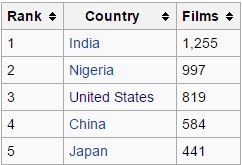#FLOPKART
Flipkart was planning the greatest shopping day for India 2-3
months prior to the 6th of
October, 2014, taking a leaf from the billion dollar sales of Alibaba.com (Chinese e-commerce giant). Understanding their plans Snapdeal also got themselves buckled up with a plan of their own,
to attract the dejected from Flipkart. They named this day “big billion day” with the motive of
bringing the billion dollar population of India for one purpose under one
website. Their estimation team and think tank had predicted a customer inflow
20 times of the normal weekends. 5000 servers were deployed to handle the
expected traffic. Many retailers were talked and asked to participate in this
festival, to help them make the deals as juicier as possible. Looking at the
returns Flipkart offered them, they were more than glad to be a part of it.
The reason they (Sachin and Binny) say they chose this day was because they
stayed in a flat with number 610 when they came up with the Flipkart idea back in 2007.
 The company though had achieved their targets of $100 million
(~615 crore rupees) in a matter of 10 hours, with over 1 billion hits on their
website and sales from 1.5 million customers, but there were 15 million
customers crying foul for feeling cheated by their go to website. This helped
websites like Snapdeal and Amazon.com to cash in and capitalise
on the situation. Even lesser known websites like shopclues gained much
attention on that day. Snapdeal officially announced that they had
earned 1 crore rupees every minute in sales during that day, which amounts to
the figures also put out by Flipkart, though they didn’t
reveal it in exact numbers. Amazon garnered a tremendous attention without
advertising a damn.
The company though had achieved their targets of $100 million
(~615 crore rupees) in a matter of 10 hours, with over 1 billion hits on their
website and sales from 1.5 million customers, but there were 15 million
customers crying foul for feeling cheated by their go to website. This helped
websites like Snapdeal and Amazon.com to cash in and capitalise
on the situation. Even lesser known websites like shopclues gained much
attention on that day. Snapdeal officially announced that they had
earned 1 crore rupees every minute in sales during that day, which amounts to
the figures also put out by Flipkart, though they didn’t
reveal it in exact numbers. Amazon garnered a tremendous attention without
advertising a damn.
The very next day they were
all over the news for all the right as well as wrong reasons. From the many, one
of the few who really voiced out his opinion against their strategy was Kishor
Biyani of Future Group. Obviously he would: For the fiscal ended 2014, India’s
first organised retailer, Future Retail, had a market cap of Rs 2,100 crore,
while e-tailer Flipkart was valued at around R12,000 crore. After a series of
funding, the most recent one being a whopping $1 billion, Flipkart is today valued at around R43,000 crore ($7
billion), while Future Retail stands at R2,886 crore. If this does not tell the
story of the success of online retail in India, what does?
Enforcement Directorate (law enforcement agency and economic
intelligence agency) was to look into the matter, but just recently (20
October) Minister Nirmala
Sitharaman said there was no inquiry into complaints against e-commerce giant Flipkart of predatory pricing of goods and unfair trade practices
during its recent 'Big Billion Day' sale. The
dust has settled, and it has majorly been a win-win situation for the
e-commerce of India. Snapdeal has attracted an investment of $627 million from SoftBank,
Japan looking at its growth trajectory. Amazon has seen a 30% rise in sales
since that day and an overall growth of e-commerce has touched the 48% mark.
(Statistics collected from various reliable sources. Conclusions drawn and judgments are purely my own personal point of view)





Good Work ☺
ReplyDeleteThanks Aadarsh bhai
DeleteA fab read indeed !!!
ReplyDeleteThe very next day itself, sachin admitted that the moolah was xpected but not the traffic nd thats wat spurred chaos.....hahahha its like what where you even thinking of when you put up a 2 tb hd wrth 600 bucks for ups.....some giants lke sony and samsung ( not sure of the latter ) even said that they would completely disassociate themselves from flipkart...now thats ones a bummer :p
Thanks, and yea I totally agree to your point.
Deletereally a good piece of epistle to have an eye upon.....you brought all perspective in line quite lucidly which is not so easy task. also, Interestingly you tried to bring in a bit of law in it and thereby caught my attention...much appreciated!!!
ReplyDeleteThanks for the support Shashank! Yea I have tried to impress people from every field whether its law for that matter! LOL
Delete